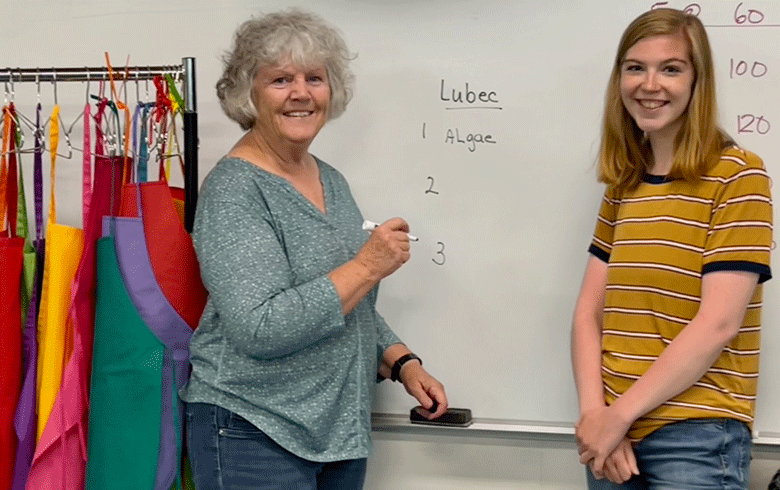Reflections is written by Island Fellows, recent college grads who do community service work on Maine islands and in coastal communities through the Island Institute, publisher of The Working Waterfront.
Over the past few months I’ve collected stories from students, past and present, who participated in Downeast Institute’s education program. The goal is to better understand which experiences students liked and disliked and to learn what was most memorable for them.
As a second-year Island Fellow focused on envisioning and preparing for the future of Downeast Institute’s education program, I want to ensure the program is tailored, at its core, to the interests and needs of local youth.
Most students fondly recalled themselves or their classmates getting soaked at the touch tank or on the rocky shore. They found they focused, engaged, and retained information more effectively under our hands-on, outdoor-centered educational approach.
I only knew that I cared about the environment and felt an affinity for Maine’s coast.
Perhaps most importantly, students recognized their privilege in having the opportunity to see and experience real-world marine science organisms, research, and technology at Downeast Institute (DEI) in ways they wouldn’t be able to elsewhere. Their insights have been illuminating, humorous, and utterly invaluable.
In the spirit of my fellowship rapidly ending with each new warm, sunny spring day, I thought it would be fun and introspective to ask myself some of the same questions I asked our students.
Share your DEI story: I’ve planned and executed educational lessons at local schools, at DEI, and over Zoom. I’ve assembled teacher kits and student bags filled with learning resources and distributed education program newsletters to parents. I’ve assisted with fieldwork, sample processing, data collection, and writing technical reports for the Clam Recruitment Monitoring Network.
I’ve helped with ocean acidification projects in the lab and scrubbed tanks and overwintered clams in the hatchery. I worked with summer interns, managed guest visits to DEI’s facilities, gave public tours, and coordinated and attended public outreach events and information sessions. I created videos on shellfish management techniques, staff profiles, and education lessons.
My favorite part of being at DEI: Tod the Cod, stunning island sunsets, jumping off DEI’s pier, fieldwork on mudflats with Dr. Beal, attending local summer festivals, absorbing the knowledge and skills of my talented coworkers, and eating the desserts Colleen and Lynn bring for after-lunch snacks.
A favorite lesson/activity: I loved growing algae in the classroom because I learned alongside the students how to attach seawater jugs to lights and aeration and add the correct amounts of bleach, chemicals, algae, and nutrients. I observed the jugs turning darker shades of green as the algae multiplied and heard students exclaim, “We’re real scientists!”
I also enjoyed taking students to DEI’s rocky shore, conquering my initial anxiety hunting for large crabs, and collecting data on the plentiful rockweed Ascophyllum nodosum.
DEI programming’s impact on plans/career interests: Prior to my fellowship I had no idea what my future held. I was envious of peers with specific passions and concrete goals. I only knew that I cared about the environment and felt an affinity for Maine’s coast.
My time at DEI confirmed that I want to continue working at the local level, helping to create environmentally and socially equitable communities. I’m committed to utilizing my science background, strengthened by my recently developed public engagement and education experiences, to heighten the quality of life for all. I’m attuned to understanding the intersectionality of the natural world with human sociocultural, economic, and physical ways of being.
Recommendations for the future of the education program: DEI should continue collecting qualitative information about the impact of the education program on participants. A successful program strengthens and maintains collaborative relationships with partner schools and homeschool parents/children.
The program should define success not in terms of numbers/statistics, but in the quality of the relationships created, and should expand its definitions of reach and impact to include not only groups visiting DEI for in-person lessons, but also student internships, teacher trainings, collaborations with colleges/universities, and schools involved with field projects.
Hannah Greene graduated from Wheaton College in 2020 with a B.A. in environmental science and minors in public policy and public health studies. She is based on Beals Island and supports the Downeast Institute with educational programming, marine science research projects, and community outreach and engagement initiatives.





